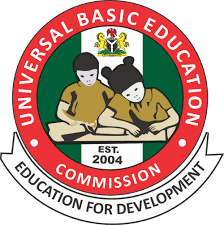THE Executive Secretary of the Universal Basic Education Commission (UBEC), Dr. Hamid Bobboyi, has said the country needs additional 194,876 qualified teachers to fill the existing gaps in the basic education sector. He also disclosed that at the primary school level, the nation needs 907,769 new classrooms and also requires new 200,085 classrooms at the Junior Secondary School level, making a total of 1,107,854 classrooms needed at the basic education level.
He stated this in Ikeja, Lagos during a one-day partnership meeting/dialogue with the organised private sector on the implementation of the Universal Basic Education (UBE), programme.
“There exists an acute shortage of qualified teachers in the public primary schools. Of the 694,078 teachers required at this level, 499,202 are available, leaving a gap of 194,876
“Early Childhood Care Education (ECCE) and junior secondary school appear to have more teachers than they require. The problem here lies with their skewed deployment in favour of schools in urban centres. The inadequate supply of qualified teachers at primary school level is contributing to learning poverty,” Bobboyi said.
On the dearth of qualified teachers at that level, he blamed state governments which do not take teachers’ professional development as a priority, despite collecting 10% of UBEC grants for such purposes.
” The federal government sets aside 2% of the Consolidated Revenue Fund for UBEC and the state governments directly get 10% of it for Teachers’ Professional Development and 15% for Instructional Materials, but how many states use such funds for those purposes? Even the Matching Grant of 50% that they are expected to provide for other projects, some are not faithful,” he explained.
On the environment where pupils and students learn, the UBEC boss decried the existence of a high deficit in physical infrastructure provision in schools.
“40% of classrooms are in bad condition in the basic education sub sector. The poor condition of classrooms cut across all geo-political zones. As of 2022, 907,769 additional classrooms were required in primary schools, and 200,085 were required in junior secondary schools.
“All geo-political zones are above the standard ratios (learner/classroom and learner/teacher) as specified by the National Policy on Education. Generally, a high percentage of learners do not have furniture in both public and private schools. Percentage of schools without toilets is worse in public schools (especially ECCDE and primary) compared to private schools. States are totally overwhelmed,” he added.
He said a total of 46,920,422 young Nigerians are in school at the basic education level, with male being 23,858,390 and females 23,062,032.
He put the total number of schools at that level at 171,027 and that private schools, as at 2022 were 91,252 and public ones were 79,795.
He stated that while the number of schools grew by 16.9% between 2018 and 2022 majorly due to the increase in the number of private schools, public schools only recorded a growth of 3.48%.
The development, he opined, accounts for the low transition of pupils in primary school to secondary school level.
Speaking on the way forward, Bobboyi called for greater collaboration between public and private sectors, especially with regard to funding, “as government cannot do it all alone.”
“UBEC envisages that greater determination and collaboration between the Commission and key stakeholders in the following areas will provide an effective response to the identified gaps: The private sector should invest more in basic education delivery towards complementing the efforts of the Federal Government.


